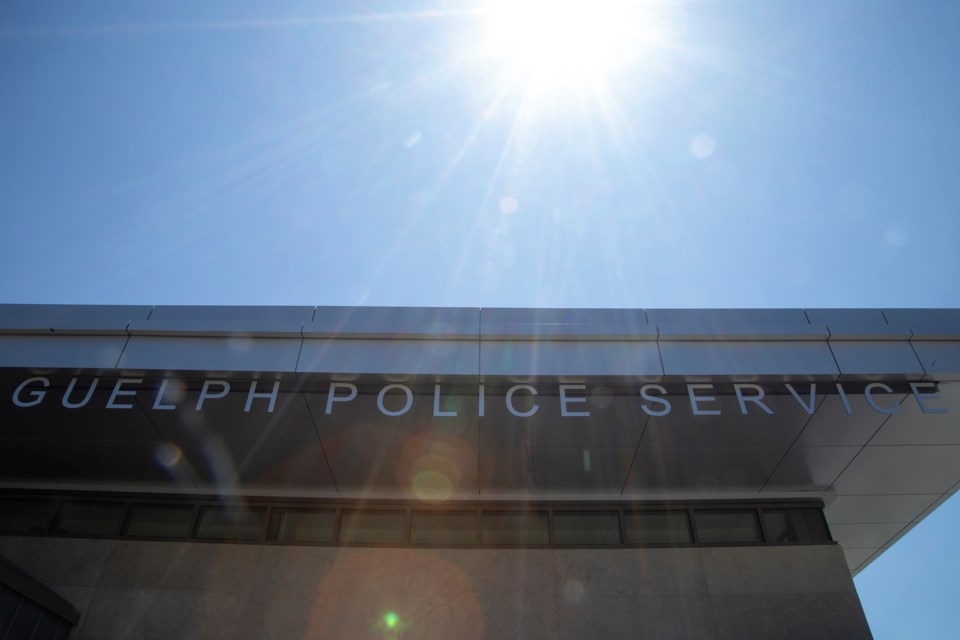An independent consulting firm says the Guelph Police Service should hire more officers and re-think its shift schedule to meet the current and future needs of the community.
Those were two several recommendations made by consulting form KPMG's study of Guelph police's staffing levels and service delivery, which took the agency about four months to complete.
The report was presented to the Guelph Police Services Board Thursday.
"Guelph Police Service still has, on a comparative basis (to other services in similar sized cities in Ontario), a lower ratio of officers to the population that it serves," said Tim Swanson, a senior manager at KPMG.
He said the question is how can Guelph police be prepared to be a modern police service, ready to take on the challenges that are becoming more complex.
When it comes to staffing levels, the report points out 10 per cent of the workforce are on presumptive leave on average, and about 25 per cent on training or on a regular absence at any point.
The report recommends increasing the front-line neighbourhood patrol by 12 to 20 officers. This, it said, would align Guelph with comparable police services in terms of the average officer to population ratio projected for 2023, as well as add some capacity for growth.
The report also suggests adding 6.5 to 8.5 investigative service workers, and civilian positions looking at admin, a senior and two junior data analyst and a cyber crime analyst.
"It's important to note that when we think about this recommendation, the goal is not to try to merely keep up with demand," Swanson said. "There's a very important officer safety element here. There's also – and this is where we can start to bend the curve or make a difference – moving into the proactive policing.
"It's not good enough just to respond to calls for service, we need to have some capacity to start to be proactive in how we address crime."
He later said Guelph police doesn't seem to have the capacity to be able to perform proactive policing at this stage.
Chief Gord Cobey said the vast majority of shifts, the service has 11 or 12 front line officers available to respond to calls, not including specialized units. Cobey said of that, one is primarily to support the downtown, bringing them down to 10 vehicles.
On top of that, he points out crashes and significant calls brings the number down even more.
"Folks still have to have lunch, and get breaks, so very quickly, you can see how these numbers diminish," he said.
Cobey said the challenge is being able to do proactive policing on top of all that, like speed enforcement.
Adding boots on the ground is one thing. But timing is everything, according to KPMG.
This is why another recommendation asks for police to adjust patrol shift schedules, and look at having overlapping schedules, particularly during peak hours, to redistribute the workload across a larger resource pool.
The report indicates target patrol shifts don't align with time-of-day call volumes at the moment.
Diagrams presented show police get the majority of their calls during the week between 8 a.m. and 9 p.m., peaking between 9 a.m. and 6 p.m. There's also a high level of calls Friday and Saturday.
The report recommends having two 12-hour day shifts beginning at 6 a.m. and 7 a.m. respectively, an afternoon/night shift from 2 p.m. to 2 a.m., and an overnight shift between 6 p.m. and 6 a.m.
In addition, one consideration is to start the afternoon shift two hours later on Fridays and Saturdays, to help with the increase in calls during the early morning hours.
The report does note this comes with challenges, including the number of patrol vehicles and equipment available.
Amalgamation is a theme to another recommendation, bringing certain units together.
This includes those who deal with "human-centred crimes," such as the special victims unit and intimate partner violence, child exploitation and human trafficking.
Swanson said there's also value in aligning fraud and cyber crime together under a dedicated sergeant, and increasing supervisory capacity with the intelligence and drugs unit.
The full recommendations can be found here.
Cobey said they're in the process of reviewing the recommendations, and pointed out the one on a staffing model review – which was also highlighted by the Ontario Chief Coroner in 2019 – is being worked on.
"We are currently developing an active staffing model to ensure our service can provide adequate and effective policing, while also supporting our members who require support for operational stress injuries, and those who are actively at work each day," he said.
Cobey expects to have that model presented to the board in the coming weeks.
As for the rest, the board has asked staff to provide updates to the recommendations in the next several months, as well as during the 2024 budget process.



